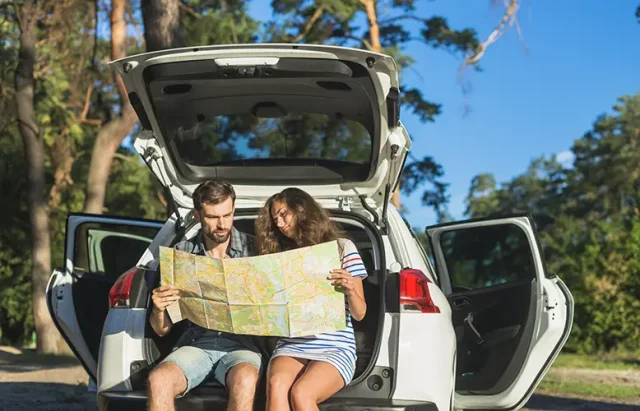
Travel is exciting, whether it’s a cross-country road trip, an overseas adventure, or even a weekend getaway. But while planning what to see and where to stay usually tops the list, travel safety often gets overlooked. The truth is, prioritizing safety can make the difference between a memorable trip and one you’d rather forget. From avoiding theft to knowing how to respond to accidents, safety should always be part of your itinerary.
Understanding the Risks While Traveling
Every trip comes with potential risks. On the road, car accidents remain one of the most common hazards travelers face. A moment of distraction, unfamiliar routes, or reckless drivers can lead to serious consequences. While you can’t prevent every mishap, being prepared with knowledge and a plan makes a significant difference.
Beyond road safety, risks include theft, scams, natural disasters, or even health-related emergencies. The goal isn’t to travel in fear but to travel smart, understanding that preparation reduces vulnerability.
Why Car Accidents Are a Top Concern for Travelers
Car accidents can quickly derail travel plans, especially if you’re driving in a new city or country. Rental cars, long drives, and unfamiliar traffic rules all increase the risk. If you’re traveling through Houston, for example, a Personal Injury Lawyer Houston would advise you to document everything right away if an accident occurs. Even though you hope never to need legal help, knowing where to turn gives you peace of mind while traveling.
Accidents don’t just cause injuries they bring stress, unexpected expenses, and time lost. That’s why factoring in road safety before and during your trip should be as important as booking flights and hotels.
Practical Safety Steps for Every Trip
When planning your travels, keep these safety measures in mind:
- Share your itinerary with trusted friends or family.
- Keep copies of important documents (passport, ID, insurance) both digitally and physically.
- Research local emergency numbers and healthcare facilities in your destination.
- Use secure transportation options, especially at night.
- Always wear a seatbelt and follow traffic rules, whether driving or riding as a passenger.
These small precautions can help you avoid larger problems down the line.
Health and Medical Preparedness
Your health is part of your safety. Carry a small first-aid kit, any prescription medications, and know where the nearest hospitals are. If traveling internationally, check if your insurance covers medical care abroad. Simple planning prevents small health concerns from becoming major disruptions.
Digital Safety in the Age of Travel
Today, safety isn’t just about the physical world. Travelers are often targets for online scams, especially when using public Wi-Fi in airports, hotels, or cafés. Use a VPN to protect your information and avoid accessing sensitive accounts on open networks. Being careless online can expose you to financial risks as quickly as a lost wallet can.
Balancing Fun and Responsibility
Travel should always be enjoyable, but responsible planning ensures that fun isn’t cut short. Think about simple choices like not overpacking valuables, double-checking hotel locks, or using licensed taxis that let you explore with fewer worries.
Car accidents, theft, and other travel-related incidents can happen anywhere, but when you make safety part of your routine, you’re better equipped to handle the unexpected.
Why Safety Matters Everywhere You Go
Travel safety doesn’t stop at international borders. Even domestic trips can present unexpected challenges. While international travel has its risks, even local trips can end unexpectedly. Say you’re traveling through Houston a Personal Injury Lawyer Houston would advise you to document everything right away if an accident occurs. This kind of foresight ensures that you’re protected, no matter where your journey takes you.
Conclusion
Safety isn’t about being fearful it’s about being smart. By making travel safety a permanent part of your planning process, you protect yourself, your loved ones, and your experiences. Whether it’s avoiding a car accident, protecting your identity online, or knowing how to respond in an emergency, preparation is what keeps a good trip from turning into a nightmare.
FAQs About Travel Safety
1. Why is travel safety important?
Travel safety helps you prevent risks like accidents, theft, scams, and health emergencies. It ensures peace of mind so you can focus on enjoying your trip.
2. What should I do if I get into a car accident while traveling?
Stay calm, check for injuries, document the scene, and contact local authorities. If you’re in a city like Houston, consulting a Personal Injury Lawyer Houston can provide guidance on your legal options.
3. How can I stay safe online while traveling?
Use secure Wi-Fi, avoid accessing sensitive accounts on public networks, and consider using a VPN for added protection.
4. Should I carry travel insurance?
Yes. Travel insurance covers unexpected expenses like medical emergencies, trip cancellations, or lost luggage.
5. What are the most common travel-related accidents?
Car accidents, slips and falls, and theft are among the most common risks faced by travelers. Being prepared helps minimize their impact.





